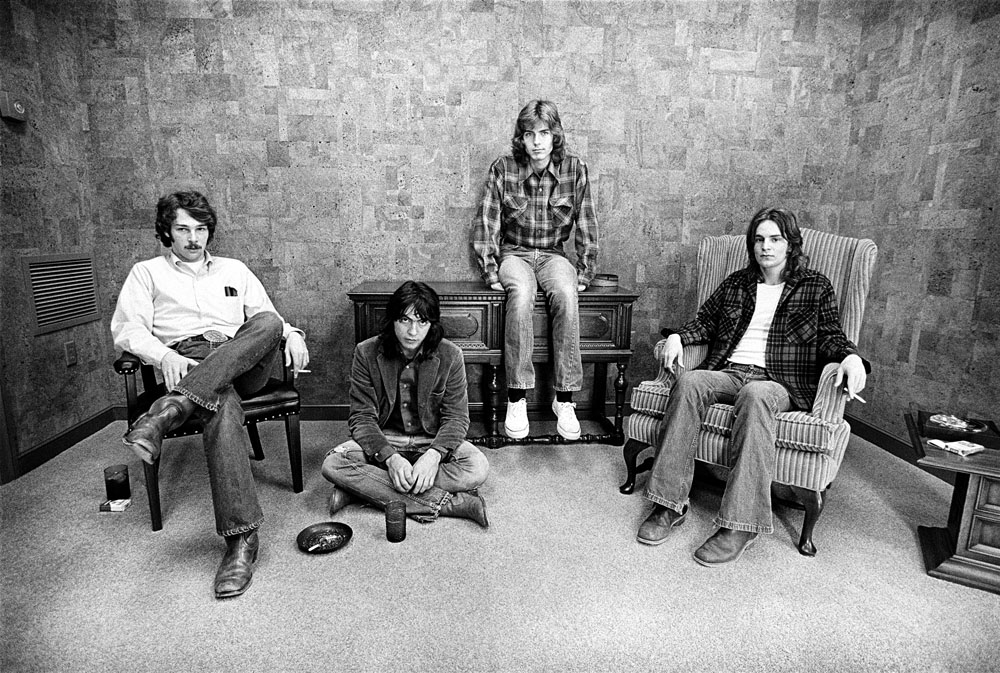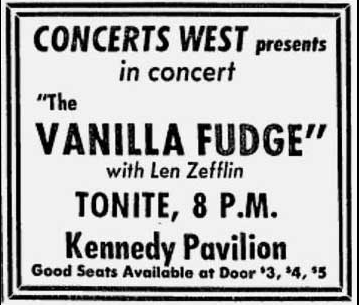https://youtu.be/-RGPwIvFE8s
…I attended this show, age 12. Upon walking in the coliseum, I asked “what’s that smell?” “That’s pot, you idiot,” replied my friend, who apparently ran with a faster crowd.
It was quite a show, with generous use of a theremin during Heartbreaker and Whole Lotta Love. I’ll admit to getting bored with some of the longer ones, but much of it was stunning. Anyway, you can forgive them for overdoing it, because they loved to play and no one was playing better at the time (I doubt if they ever played as well as they did during these early years; they were clearly not as good by the time they made their concert movie, I think in ’73). They were pumped about playing here, you can hear Robert Plant announce that just before they begin. They’d spent much of the day scoring local rockabilly and blues records that were rare elsewhere, something you could still do fairly easily in Memphis back then.
However, as good as the show was and as well as they played, they did not depart on good terms. The police got very antsy and interrupted them during the last long medley (based around How Many More Times but including Tobacco Road, Honey Bee, and also Memphis TN and That’s Alright Mamma for the occasion) and kept harrassing them to get the crowd to sit down. This was still the era of violent Viet Nam protests, and the cops were just nervous. Before the encore you can hear Plant, at the behest of the police, beg the crowd to sit before a policeman chimes in. Plant obviously didn’t care about the crowd standing, but the band was under threat of arrest at that point. Then Page lashes out the first chords of Whole Lotta Love and the place goes bonkers again. The police had ordered all the house lights turned on during How Many More Times; they just wanted people to leave. But of course no one did, because the band was at full throttle.
Meanwhile, backstage, the promoter was afraid the authorities would ban him from ever staging another show in Memphis, so he pointed a gun at Peter Grant to try to make him stop the show. Grant called his bluff and reportedly looked him square in the eye and said “ya can’t shoot me, ya cunt. They gave us the key to the fuckin’ city.” And they had. Prior to their arrival, Mayor Loeb decided to award an official key “to that Led Zeppelin feller who can sell out the coliseum in an hour” (a record at the time). When the mayor saw their hair, he regretted the decision, but ever the southern gentleman, proceeded anyway in a short, awkward meeting the afternoon of the show.
As for me, I got grounded a few weeks for attending. The newspaper reported the widespread pot use and trouble with the police. When I’d asked permission to go, I said LZ were sort of like the Partridge Family. I had no idea they reviewed rock concerts in the newspapers. It was worth the grounding. I don’t think I saw such an exciting culture clash until the Sex Pistols came through in early ’78.
This tour was in support of Led Zeppelin II. The Memphis date came a few months after the legendary Royal Albert Hall show, so the set is similar but mostly better. They’d toured extensively in between, so they’d perfected it on the road by the time they got to Memphis. Just one of many examples: here’s the RAH version of their opener, “We’re Gonna Groove,” and here’s the Memphis one. Page had added some great guitar fills, and then there’s the extra funk groove in the middle.



